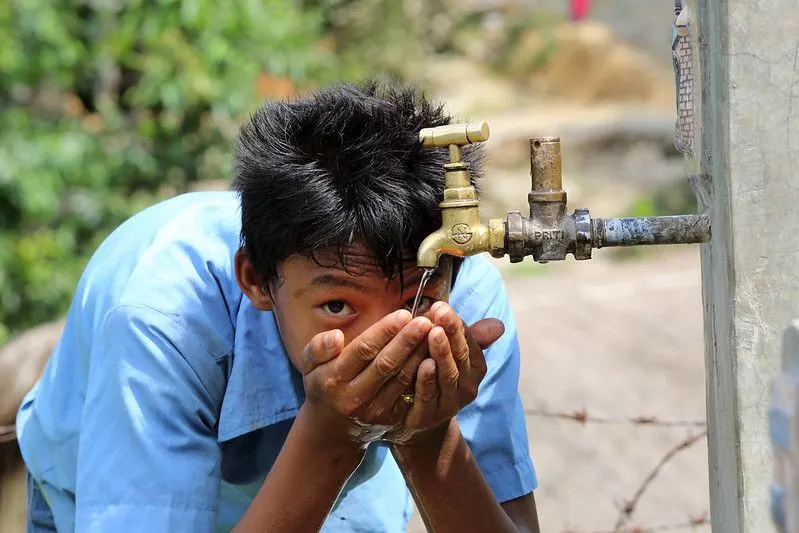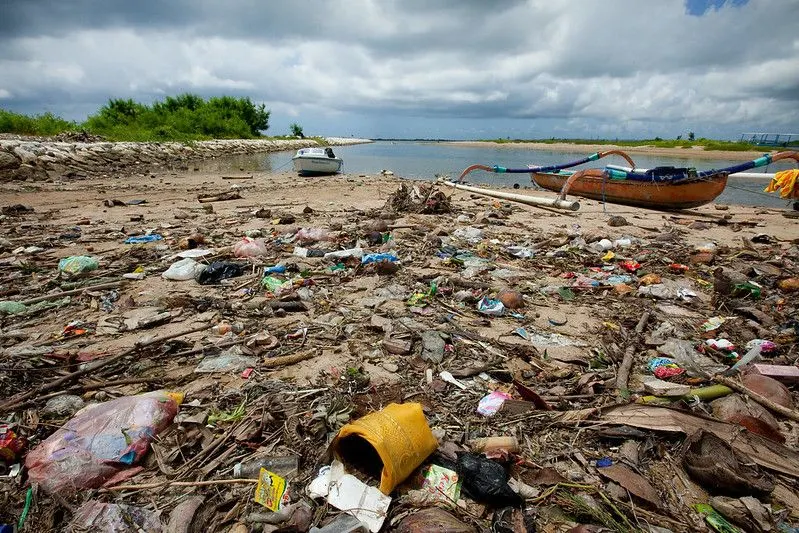Unfortunately, no – it is not considered safe to drink tap water in Bali. You might wonder if the reality is as terrifying as it seems – a place with an abundance of splendour surrounded by dangerously contaminated water.
But it is harsher than it seems – tap water in Bali is not fit to drink without boiling or filtering (any form of purifying) and it’s always best to be prepared before your visit.
If you are dreaming of soaking in the sun and swimming in the blue sea, there are a few things to be aware of about the ongoing water crisis in Bali.
This article will explore where this problem stems from, why you should avoid Bali tap water and how to prepare for this during your stay.
Is Bali Water Dirty And Toxic?
The water may not seem dirty in Bali but research proves that Indonesia ranks among the worst countries in Asia in sewerage and sanitation coverage due to the lack of proper maintenance and infrastructure.
Also, one other major reason is their annual monsoon weather that washes up marine pollution (plastic and other chemicals) from Java, the neighbouring island that is the economic engine of Indonesia.
The collecting trash on the hidden beaches of Bali affects the rest of the natural water sources, making it extremely difficult to find pure drinking water that has not been contaminated with bacteria, viruses and microscopic metal and plastic pieces.
This deteriorates the water quality and makes it dangerous for human consumption.
You might be interested in Best Places to Visit in Indonesia
What Happens If I Consume Tap Water In Bali?

Among other things to avoid in Bali, such as driving a scooter without a license – consuming tap water is certainly at the top of the list.
Tourists are sternly warned to avoid consumption of contaminated natural and tap water to avoid any infections, diseases or food poisoning.
Usually called the ‘Bali Belly‘ or ‘Travelers Diarrhea’, this lasts about 4-5 days with effects such as watery diarrhoea, vomiting, fever, bloating or tummy cramps.
Origins Of The Bali Water Crisis

Experts say the blame falls on Bali’s tourism industry which attracts millions of tourists a year and consequently uses about 65 % of clean water.
It has been found that a single tourist uses over 2000 litres of water; and the homestays, hotels and resorts are required to maintain golf courses, gardens and refill swimming pools that these tourists enjoy.
Apart from the overuse, other factors such as water pollution, lack of infrastructure and volatile weather patterns are also to be blamed for the ongoing water crisis.
Unless the Bali tourism industry adapts to sustainable tourism, this current situation is only expected to be much worse by the year 2025.
How Can I Avoid Getting Infected With Bali Belly?
As a tourist, you can avoid Bali Belly with a few tips and tricks.
- The first tip is quite easy to guess – try to stay away from consuming tap water in Indonesia whenever possible.
- Avoid dodgy street food vendors as they use tap water for food preparation since it is more convenient.
- In cold beverages, you can avoid ice cubes altogether even if a cold one would be heavenly to enjoy in Bali.
- Avoid splashing your face or brushing your teeth with bacteria-infested water.
- Use bottled water whenever necessary, and check for reputed brands like Aqua and find the source of the water (make sure it isn’t from the same local water sources).
- The most important tip is to make sure that the water is boiled or purified through a filtering system.
How Likely Are You To Get Sick From Consuming Bali Water?
This entirely depends on your past consuming habits. There is another side to the story where some tourists had no reactions to drinking tap water and could handle the bacteria that comes with it.
For example, it is believed that tourists from South Asia will have less severe reactions when compared to tourists from Europe.
So you could be the judge of that! But bear in mind that the long-term effects of consuming this contaminated water include kidney problems.
You might be also interested in: Does it Snow in Indonesia?

